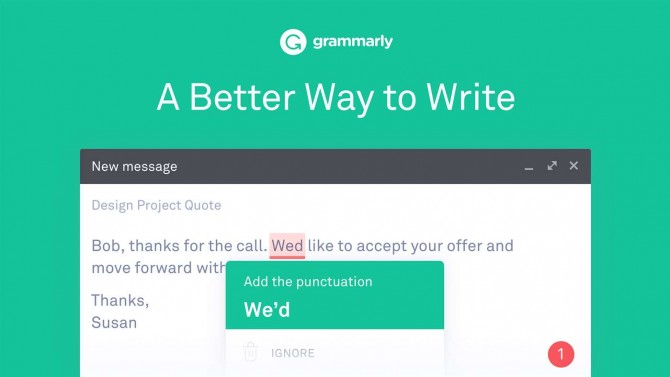How to Improve Your Writing
I don’t think I can overemphasize how important it is to be able to write well. Clear and articulate writing is a skill applicable to almost every aspect of one’s life. On the job hunt, a persuasive and well-written cover letter can set you apart from your competition. Once you have the job (no matter the field) clear, concise, and grammatically correct emails convey competence to the recipient. Even on a personal note, knowing how to express your opinions is useful when writing to local government, conversing with service providers, or even leaving a restaurant review.
To put it simply, you’ll never regret investing time in improving your writing.
But how?
I’m going to level with you: writing is half interest and half a learned skill. If you don’t love reading or storytelling you will never be an amazing writer. Sure, you can become technically skilled but you aren’t going to captivate a reader with your masterful grammar.
That being said, if you have no interest in becoming a great writer there is no reason that you can’t still become a proficient writer with just a few simple tips. The title of this article is “How to Improve Your Writing,” not “How to Become Hemmingway in 30 Days,” so if you want to take your blogs from good to great, or if you just want to stop embarrassing yourself in emails, here are some easy ways to get better:
Start Reading. Then, Read Critically
It would be particularly useful to read the types of content you intend to write but just reading, in general, will make you better at writing. Why? It improves your vocabulary by exposing you to new words, familiarizes you with sentence structuring, and gives you a sense of what good writing looks like.
When reading, read with a critical eye. Pay attention to what you like, what you don’t like, and be specific. If you don’t like a particular article, think specifically what you didn’t like about it and try to see beyond the content matter. Was it too long, or not explanatory enough? Was the author too informal, or stiff? Was the writing clear, or were you confused as to what the writer was trying to say? Pay attention to writing conventions and decide what you want to replicate, or avoid, in your own writing.
Bonus Tip:
Do you struggle to find things you actually enjoy reading? Use Twitter to follow and search for interesting content. I specifically follow publications and blogs I find interesting so that Sunday morning when I have a giant coffee and it’s time for a long read, I can just scroll through Twitter and open up a few tabs.
TL;DR (too long; didn’t read)– Read often and pay attention to what you like, and don’t like, in writing.
Write for the Reader
A lot of blogs about improving copywriting push conversational writing oft citing popular, straightforward writers like Bukowski and Hemmingway. But you are not a novelist, and neither of those authors ever had to write an email explaining to an unhappy client why a project went over budget.
Furthermore, it wouldn’t be appropriate to write conversationally for all copywriting endeavours—trust me, I know first hand. Everbrave has quite a few technical, B2B service provider clients and if you think writing an article explaining directional drilling should be conversational, then you’ve never worked in directional drilling.
Instead of trying to write conversationally, imagine who will be reading what you’re writing and format accordingly. Explain the information in a way that makes the most sense, and in a tone that the reader would most like to hear it. If you’re writing a blog post to a wide audience, use accessible language (avoid big, unnecessary words). If you’re writing an email to a client, use polite conventions, and address them respectfully.
Perhaps I’m misinterpreting the use of the word conversational in some of these other writing blogs, but it makes me think of the word informal and you can’t write informally all the time. Yes, it’s important to be clear and straightforward but I can’t advocate for people to write everything like they’re speaking with a friend.
TL;DR- Your readers are not your friends, don’t address them as such. Write in a tone your audience will best respond to. Know your audience.
Grammar is Hard, Cheat Your Way to Success
Despite judgement from friends who work in publishing and communications, I advocate for everyone to download Grammarly (I even included it in my last blog). The writing purist in me feels deep shame that I need grammar help but I feel more shame sending out emails, or publishing blogs, only to later notice easily preventable blunders.
I am by no means a grammar snob, as it doesn’t really improve a story, but that also doesn’t mean it isn’t important. Proper grammar makes writing clear, understandable, and adds credibility. A piece riddled with spelling errors and run-on sentences detracts from the information provided, is uncomfortable to read, and makes the reader question the legitimacy of the content.
It’s important to have a decent grasp of the English language but I’m not here to harp on that point, there are already plenty of helpful articles on improving grammar (see here, here, and here). The advice I will give, however, is this: cheat. Download Grammarly, use spellcheck, or find other helpful editing apps. If you aren’t a total word nerd, you are going to make some grammar errors and that is ok but prevent as many as possible by using apps or tools.
TL;DR- Grammar is important. Use apps and tools to help you out.
Always use the Buddy System
When in doubt, have someone read your writing. Heck, even if you’re certain it’s a masterpiece, still have someone proofread your writing. There is no writer in the world that doesn’t need an editor, and there are no exceptions.
TL;DR- Get someone to proofread your work.
Create a Process
It is inevitable that writing will be occasionally difficult. Creativity and inspiration are not always endless wellsprings, and sometimes trying to start a project feels like staring at a brick wall. Luckily, there are a few different ways in which to bust that wall down and start the project you’ve been dreading.
- Stream of Consciousness Writing
If you’re particularly blocked for inspiration or struggling to start, stream of consciousness writing can be an effective method.
Open a blank document, think about the topic you need to write about, look away from the screen, and start typing whatever comes to mind. The trick to this is to not look at the screen until you are finished as you will want to start editing and it’s best to get all your thoughts down first.
You can’t just send or publish this type of writing without formatting and editing, but it’s a great way to get started.
2. Write an Outline
When I particularly dread a project or have no clue how to begin I create a very detailed outline that goes over everything I want to say.
First, start with the introduction, and then make bullet points for everything the introduction needs to go over. Then, write a basic summary of the second paragraph and bullet points for what that paragraph need to discuss. Do the same for as many paragraphs as needed and then use that outline as a blueprint for writing.
This method is incredibly effective when you generally know what needs to be said in a piece, but don’t know how to structure it.
3. Create an Environment for Creativity
Think about the times in which you are most productive. Is it at home in your kitchen or is it at your office desk, first thing in the morning? Every individual responds better to certain environments for particular tasks and learning where yours are can be pivotal to writing.
If your phone easily distracts you, keep it out of sight. If you work best at a desk, only write at a desk. If your afternoon latte seems to be the gateway to creative expression, get to writing after your latte. Identify where you work best and use it to your advantage.
TL;DR-Create a process for writing so that if you need to get something done, you aren’t at the mercy of inspiration.
Research is Everything
It is almost immediately clear when a writer doesn’t understand the subject matter of their article. Researching whatever you intend to write about is critical. You need to convey your point clearly and accurately to readers and you can’t do that if you don’t truly understand the topic matter.
A poorly researched piece can be confusing, or worse, misleading, to a reader but it’s also needlessly difficult for the writer. With enough research, it becomes a lot easier to make a point and fill a page. Do yourself, and the reader, a favour and do thorough research before you put pen to paper (or your fingers to keyboard).
TL;DR- You need to research the topic you’re writing about or you’re doing a disservice to yourself and your readers.
That sounds like a lot of work…
Writing is a constantly evolving process. A professional writer is constantly improving their process and learning as much as anyone else, so don’t be discouraged if writing seems like a daunting task. You can get better.
And if not? Well, thank goodness for copywriters.
Want to learn more about how your business’ content writing and marketing efforts stack up? Recieve a free inbound marketing assessment from our experts.









